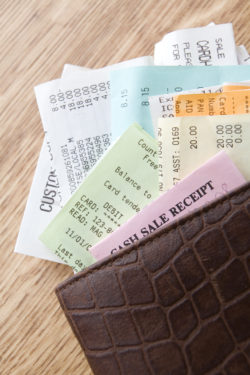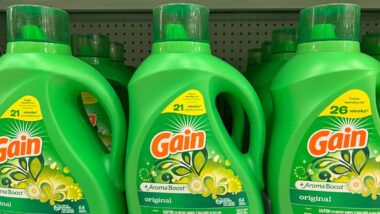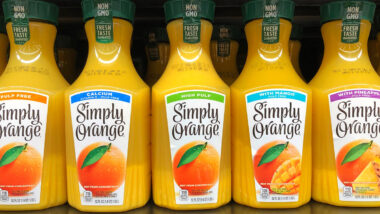
When you purchase an item at a retail store, the store clerk generally hands you a receipt. The receipt not only lists a description of your purchases, but also indicates how you paid for the items.
When you pay with a debit or credit card, only the last five digits of the card number should appear on the printed receipt. If the expiration date or any other of the card number’s digits are visible, the merchant could be held accountable for not following FACTA credit card receipt requirements.
FACTA is intended to protect consumers from credit card fraud and from identity theft. If someone is able to determine a credit card number or debit card number from a receipt, that person is a step closer to committing either identity theft or credit card fraud.
According to the Federal Trade Commission’s Bureau of Consumer Protection, “Credit card numbers on sales receipts area a ‘golden ticket’ for fraudsters and identity thieves.”
Credit Card Receipt Requirements
FACTA improves credit card security by making sure the following information is included on a receipt:
- Merchant’s DBA (Doing Business As) name and address
- Date of transaction (and sometimes, the exact time)
- Products or services purchased, including prices of individual items and applicable taxes
- The cardholder’s signature on only the merchant’s copy, unless a PIN number was used
- Authorization approval code from the card issuer
- Up to the last five digits of the credit card account number if done electronically. (This does not mean a combination of any five digits of the card number; it means ONLY the last five digits can be printed on the receipt.)
These FACTA laws apply whenever you are handed a computer-generated receipt. Some boutique shops that continue using old machines that press the imprint of the card number onto a carbon paper are exempt from FACTA rules, as are any handwritten receipts.
Consumers who suspect credit card receipt requirements have been violated can file a lawsuit against the retailer. The Federal Trade Commission can issue penalties. Consumers who have gone to court have successfully obtained damages and attorney’s fees as a result of FACTA violation lawsuits.
Merchants often have to pay civil penalties and injunctive relief, which means the retailer has to stop a committing a certain offense. Any business that has “willfully” committed FACTA violations during a sale can be sued. Retailers who are determined to be liable in a FACTA lawsuit may have to pay $100 to $1,000 in damages per violation, or the actual monetary amount the infraction caused.
A merchant has “willfully” violated FACTA credit card receipt requirements if the retailer “knew or should have known” of FACTA’s regulations.
FACTA was enacted in 2003. Retailers have received numerous written communication outlining the law many times over the years.
Even retailers who have been compliant with FACTA can find themselves out of compliance after a computer update or changes in hardware. Consumers should check each receipt to ensure the credit card receipt requirements are properly followed.
Free FACTA Class Action Lawsuit Investigation
If you made one or more purchases and the retailer provided you with a receipt that contained more than the last five digits of your credit or debit card number or the expiration date, you may be eligible for a free class action lawsuit investigation and to pursue compensation for these FACTA violations.
ATTORNEY ADVERTISING
Top Class Actions is a Proud Member of the American Bar Association
LEGAL INFORMATION IS NOT LEGAL ADVICE
Top Class Actions Legal Statement
©2008 – 2024 Top Class Actions® LLC
Various Trademarks held by their respective owners
This website is not intended for viewing or usage by European Union citizens.














